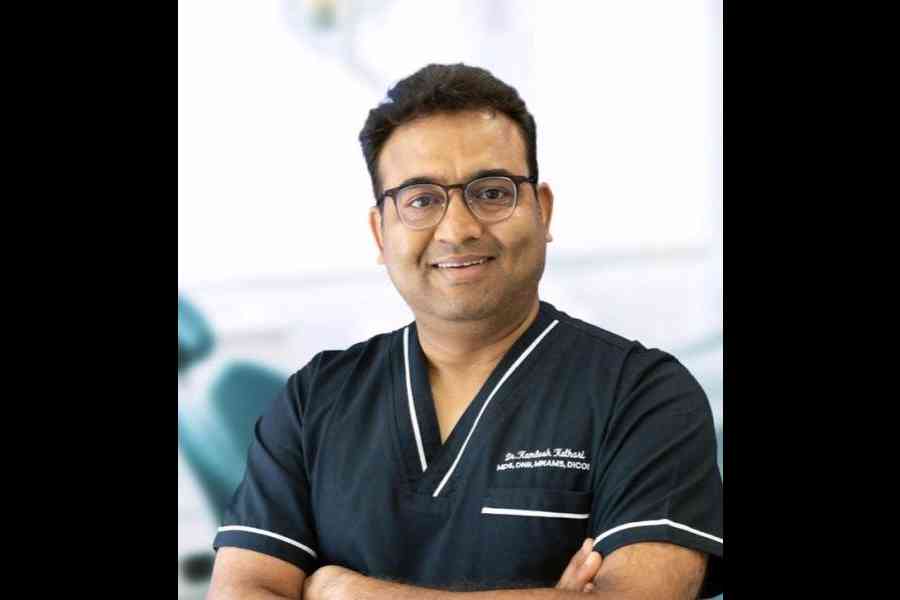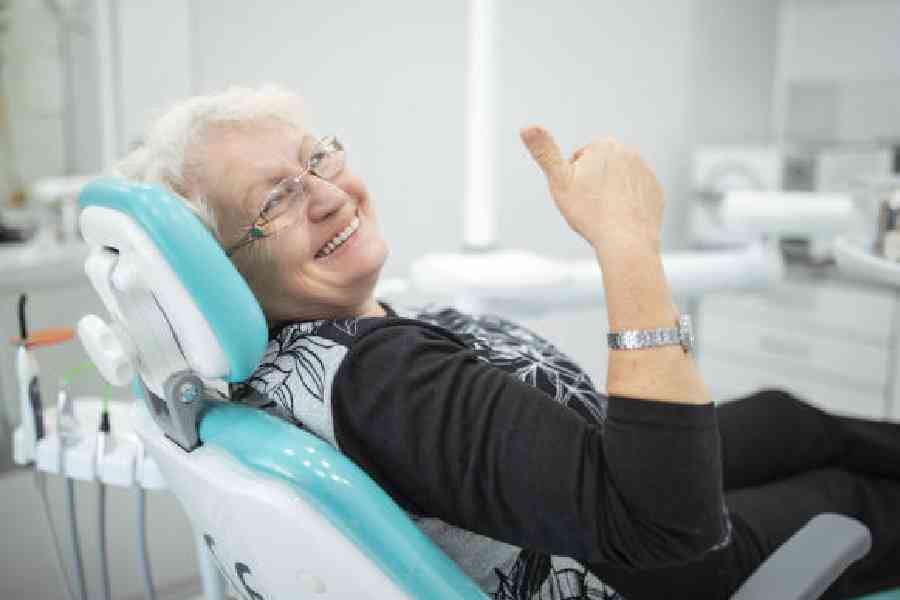For many older individuals, the loss of teeth can feel like losing a part of their identity and independence. Activities like biting into an apple or confidently smiling can become challenging. Losing all teeth can significantly impact a person’s life, particularly affecting their ability to eat and speak properly. This can make chewing difficult, limit dietary options, lead to nutritional deficiencies, impair speech, and affect social interactions. Additionally, tooth loss can cause the jawbone to deteriorate over time, leading to changes in facial structure and a sunken appearance. This can profoundly affect self-esteem and confidence, causing individuals to withdraw from social activities.
Embarking on the journey to replace all teeth is a significant decision that goes beyond restoring a smile. It’s about reclaiming confidence, functionality, and overall well-being. We will explore the various options available for comprehensive tooth replacement, including advancements in modern dentistry that offer hope and solutions to those facing complete tooth loss. From traditional dentures to cutting-edge dental implant techniques like ‘Teeth in a Day’, each option carries its own set of benefits and considerations. Navigating through the landscape of tooth replacement will empower individuals to make informed decisions about their oral health and quality of life. Here are the options available, along with their respective advantages and disadvantages.
TRADITIONAL REMOVABLE COMPLETE DENTURES
Complete dentures are removable prosthetic devices that replace an entire set of teeth in either the upper or lower jaw. Typically made from acrylic, these dentures are custom-fitted to your gums. The entire process of fabricating complete dentures can take approximately two to four weeks, though the timeline may vary depending on individual circumstances and any necessary adjustments along the way.
Advantages
Affordability: Dentures are generally the least expensive option for full-mouth restoration, making them accessible to a wider range of patients.
Non-Invasive: The process of getting dentures does not require surgery, making it suitable for patients with health conditions that may prevent them from undergoing surgical procedures.
Quick Solution: Dentures can be made and fitted relatively quickly, providing a prompt solution for missing teeth.
Disadvantages
Fit and Comfort: Dentures can feel bulky and may cause sore spots or irritation. They also require an adjustment period.
Functionality: Compared to natural teeth or implants, dentures are less efficient at chewing and speaking. The chewing efficiency is only about 20-25 per cent compared to natural teeth.
Bone Loss: Without the stimulation provided by tooth roots or implants, the jawbone can continue to deteriorate over time, changing the fit of the dentures and potentially leading to a sunken facial appearance.
Psychological: Complete dentures do not provide a sense of stability to teeth, which can cause insecurities in social settings about them slipping or falling out, leading to embarrassment.
Replacement Need: Ideally, complete dentures have to be replaced every three-five years, due to the accelerated resorption of the jawbone, leading to the dentures becoming loose. This can add to costs in the long run.
FIXED TEETH WITH DENTAL IMPLANTS

Dr Kamlesh Kothari
Dental implants are an innovative solution in modern dentistry, providing a long-term option for replacing missing teeth. They are designed to replicate the natural structure, form and function of a tooth, offering a predictable, durable, and aesthetically pleasing outcome. Typically made of screw-shaped titanium, dental implants mimic a natural tooth root to provide support for the newly fabricated artificial teeth.
The Structure
1. Implant Body (Fixture): This is a small, screw-shaped post made of titanium or zirconium oxide, which is surgically inserted into the jawbone to act as an artificial tooth root. Titanium is commonly used due to its biocompatibility, allowing it to integrate well with the bone through a process called osseointegration.
2. Abutment: This is a connector that attaches to the implant body once it has fused with the jawbone. It serves as the link between the implant and the replacement tooth or teeth.
3. Crown (Prosthesis): The crown is the visible part of the implant that looks and functions like a natural tooth. It is custom-made to match the colour, shape, and size of the existing teeth, ensuring a natural appearance.
The Process
1. Initial Consultation: Your dentist or oral surgeon will evaluate your oral health, take X-rays or CT scans, and discuss your treatment options during this visit.
2. Implant Placement: The implant body is placed into the jawbone by a minimally invasive keyhole method. This procedure is usually performed under local anaesthesia, although sedation options are available for patients who require it.
3. Osseointegration: Over the next few months, the implant will fuse with the jawbone in a process called osseointegration. This integration is crucial for the stability and longevity of the implant.
4. Abutment Placement: Once osseointegration is complete, the abutment is attached to the implant. This minor surgical procedure is typically done under local anaesthesia.
5. Crown Placement: Finally, a custom-made crown is attached to the abutment, completing the restoration process. The crown is designed to blend seamlessly with your natural teeth, providing a functional and aesthetically pleasing result.
Advantages
Implants have a natural look and feel, durability, longevity, help in bone preservation, improve functionality, give oral health benefits and are convenient. However, it’s important to consider factors such as cost, the surgical procedure, healing time, and suitability for each patient. Advances in dental implantology, particularly in the fields of digitalisation, 3D printing, and artificial intelligence (AI) in dentistry have minimised the need for bone grafting and introduced various techniques such as All-on-4, All-on-6, zygomatic implants, pterygoid implants, and graftless solutions, making dental implants a highly effective solution for replacing all missing teeth. Despite initial costs and the surgical nature of the procedure, the long-term advantages make dental implants a worthwhile investment for many patients.
OVERDENTURES
Overdentures, also known as implant-supported dentures, are a special type of dental prosthesis that combines the stability of dental implants with the convenience of removable dentures. Unlike traditional dentures, overdentures are secured in place by dental implants that are strategically placed in the jawbone. These implants serve as anchors for the overdenture, providing stability and preventing it from slipping or moving during eating or speaking. Overdentures offer several advantages, including improved comfort, enhanced chewing ability, and better retention compared to conventional dentures. They also help preserve jawbone density by providing stimulation to the bone, which can prevent bone loss over time. Additionally, overdentures are removable, making them easier to clean and maintain compared to fixed implant-supported bridges or crowns. Overall, overdentures offer a reliable and effective solution for patients with missing teeth, restoring both function and aesthetics to their smiles.
SAME DAY FIXED TEETH
The concept of ‘Fixed Teeth in a Day’, also known as ‘Teeth in a Day’ or ‘Same Day Fixed Teeth’, is a revolutionary approach in modern dentistry that offers a swift and permanent solution to tooth loss. This innovative procedure allows patients to receive a full set of functional teeth in just one surgical visit to the dentist (with a few preparatory diagnostic visits), eliminating the need for multiple appointments and lengthy waiting periods. These fixed teeth will have to be changed at a later date once the tissues have healed and settled into their final position. It’s a game-changer for the elderly, bringing back the ease and confidence that come with a fully functional and natural-looking set of teeth in an instant.
The process involves the strategic placement of dental implants into the jawbone, typically using the All-on-4, All-on-6 technique, or Zygomatic/Pterygoid implants. These implants serve as anchors for a custom-made prosthesis that is securely attached to the implants on the same day as the surgery. Unlike traditional dental implant procedures that require a healing period before the final restoration can be placed, Fixed Teeth in a Day provides immediate results, allowing patients to leave the dental office with a brand-new smile. This concept offers numerous advantages, including immediate restoration of function and aesthetics, enhanced confidence, and minimal disruption to daily life. Patients can enjoy the benefits of a fully functional set of teeth from day one, without the discomfort and inconvenience of temporary solutions like removable dentures. Fixed Teeth in a Day is transforming the way we approach tooth replacement, providing a fast, reliable, and life-changing solution for individuals with missing teeth.
Dr Kamlesh Kothari is a dental implant specialist, cosmetic dentist and maxillofacial surgeon. He is the founder and clinical director of Aesthetica, 2/7 Sarat Bose Road, Vasundhara Building. He can be contacted at www.aesthetica.co.in and Instagram page
@drkamleshkothari. You can send your tooth trouble queries to drkamleshkothari@gmail.com











